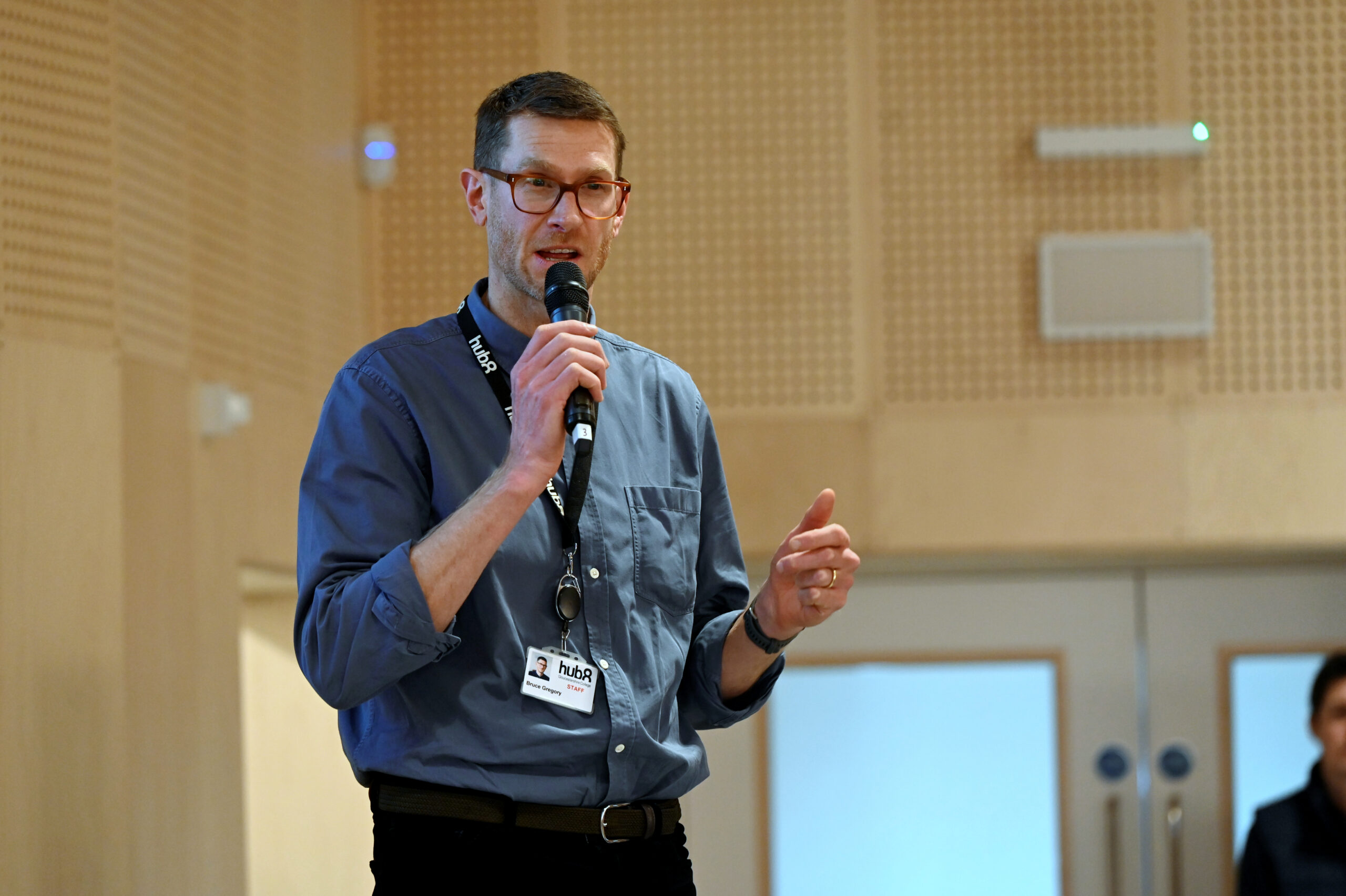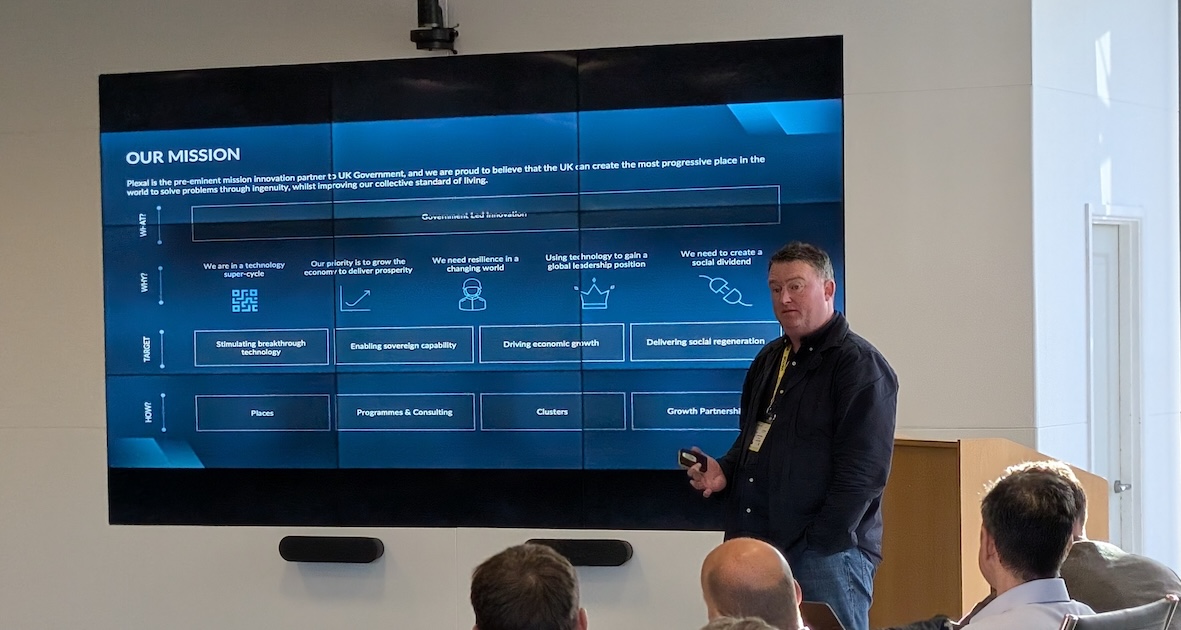Little over a year ago it was revealed the arts and technology festival, the SXSW Conference, would travel from its home in Austin, Texas to the UK for the first time and debut SXSW London 2025.
Held in Shoreditch across a series of venues, SXSW London arrived to fanfare and was joined by royalty in the form of King Charles. Other attendees were from a spread of disciplines, including Deputy Prime Minister Angela Rayner MP, actor Idris Elba, football legend Ian Wright, Team GB sprinter Dina Asher-Smith, singer Wyclef Jean, as well as leaders from Formula 1, Google DeepMind, Twitch and Wikipedia.
East London is the birthplace of Plexal and one of our workspaces is in Shoreditch, so we were honoured to shape part of the innovative dialogue taking place across SXSW London by leading an exclusive national security conversation.
This panel aligned with our work to strengthen the UK’s technology capabilities through collaboration between government, industry and startups, as we look to reinforce national security. Joined by peers from the national security community who sit on the frontline of protecting the UK, here’s an overview of the conversation.
ON MOTIVATION…
Panellists shared that their motivation to join the national security community was a sense of mission. This is considered something bigger than themselves or a company bottom line and a desire to make the UK safer.
Understandably, there’s a mentality that involves taking the work seriously – but also finding satisfaction in the thoughtful process behind creating solutions to challenges.
ON COLLABORATION AND CULTURE…
It was noted the culture of the UK’s national security community is collaborative rather than competitive and diversity is valued highly.
Diversity of capabilities was highlighted as key, given how dramatically the technology market continues to evolve. This means upskilling teams but also bringing in the right partners with the necessary knowledge.
The goal is to ensure teams are joined-up in their approach but also supported with the tools and resources required to get the job done.
Out-collaborating adversaries was highlighted as an important strategy to introduce change.
ON INNOVATION…
National security organisations desire to create meaningful change through innovation – without waiting for a crisis to be the trigger.
There are areas of the national security community moving at a pace startups would be proud of. In some cases, evolving from idea to contract in a matter of days, recognising that taking months to implement new technology risks us falling behind the curve.
Talented innovative engineers are working in national security and, when coupled with the ambition of a startup, have potential to take building solutions to challenges to the next level.
ON INNOVATION BARRIERS…
The national security community is conscious of the entry barriers faced by external parties that want to be part of the mission to keep the UK safe and request patience as they work through reshaping processes to make collaboration with SMEs smoother.
Panellists noted feeling excited and inspired after speaking to ambitious founders looking to change the world. However, the challenge is ensuring their technology can achieve adoption behind the wire.
There’s a constant need to multitask – maintaining the right level of security for the nation, while simultaneously identifying new threats, which require scaling from idea to solution at speed.
Recruiting talent in the sector can be difficult as the national security community needs to compete with private sector perks and salaries. This reinforces the earlier point about having the right motivation to work in the space, so there’s a concerted effort to find the right people.
ON OPPORTUNITIES…
Primes are commended for their contributions but it’s noted national security work needs startups too, bringing in fresh enthusiasm and agility, which means a significant mindset shift is required. Panellists confirmed that technology from startups and SMEs is critically important to out-compete adversaries.
The national security community can find it difficult going to market and disclosing a challenge area publicly. However, Dragons’ Den scenarios where startups have pitched their solutions against problem areas are said to have greatly expanded national security toolkits beyond solely relying on prime delivery. HMGCC’s ability to publicly share problems has been championed as an example of how to open the door to prospective partners.
Lack of pull-through and continual R&D has been challenge, so the goal is to help companies scale solutions and move beyond proof of concept stage – ultimately closing the valley of death. The Ministry of Defence’s (MoD) Neutral Vendor for Innovation Framework, set to provide innovative technological goods or services from third-party technology providers to the UK Government, was hailed as a step in the right direction to achieve this.
Florida-based augmented reality technology developer Red 6 – previously selected for a Disney accelerator and commended for entertainment potential – was held up as an example of startup innovation that can revolutionise national security. The company’s technology has been harnessed by the RAF for flight training and raised capital from the National Security Strategic Investment Fund (NSSIF), the UK Government’s corporate venturing arm for advanced technologies.
Looking ahead, the Five Eyes relationships remain a key source of strength for the UK’s national security community, with an ambition to continue collaborating for more effective innovation.


